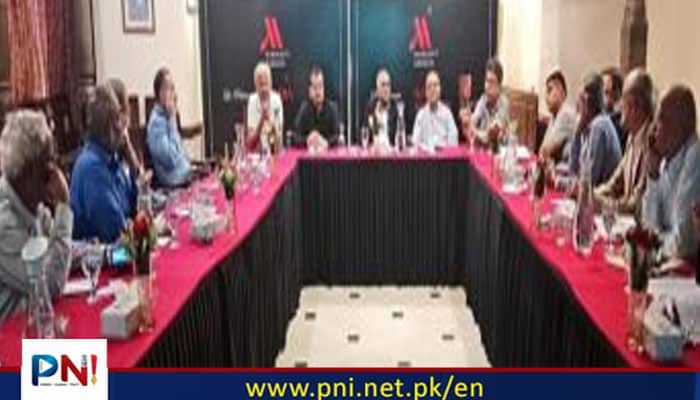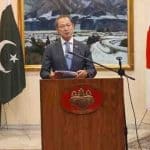KARACHI: The Employers Federation of Pakistan (EFP) arranged an Employers’ Consultation on the Draft Sindh Labour Code. More than 25 Employers and their representatives representing EFP Board of Directors, representatives from the Federation of Pakistan Chambers of Commerce and Industry (FPCCI), Karachi Chamber of Commerce and Industry (KCCI), SITE Association of Industry, FB Area Association of Trade and Industry, North Karachi Association of Trade and Industry, Pakistan Hosiery Manufacturers Association, Pakistan Ready Made Garments Association and Members EFP Legal and IR Committee.
Giving the background Syed Nazar Ali Secretary General EFP informed that the development of the draft Sindh Labour Code is part of the Sindh Government Labour Laws Reform initiatives to consolidate, rationalize and simplify the labour legislation as committed in the first Sindh Labour Policy 2018 on the recommendations of workers and employers. The draft of the labour code has been developed through the consolidation of more than 20 legislations by the experts from ILO including local consultants in consultation with officers from the labour department with the objectives of removing duplicates, and anomalies and aligning it with international labour standards.
Syed Nazar Ali also informed that the labour department has had consultations with workers and employers’ representatives to seek their input. However, EFP, considering that the new code will have direct consequences for employers and industrial relations has arranged this consultation to discuss and deliberate upon the new draft of the Sindh.
Labour Code with a view to identify the areas of concern for employers and formulate consensus recommendations for submission to the Government. Engineer Jabbar (FPCCI) pointed out some very important issues about the code and said it is an opportunity for employers to make valuable recommendations making the legislation industry friendly. Mr Irfan emphasized the importance of making the legislation responsive to the changing needs of the industry as a result of the use of new modern technologies including AI.
He also stressed the need for training of labour inspectors to ensure improvement in the labour inspection system. Khadim Rasool talked about the EU due diligence system and said the code must include the compliances and requirements of GSP Plus and other international institutions to promote Exports. Ahmed Azeem Alavi also emphasized the need to make the code industry-friendly, supporting local businesses to grow and context in the development process.
Humayun Nazir, Chairman EFP Sub Committee on Legal and IR said Labour laws are important for the smooth operation of the industries and for protecting the rights of working people. The laws must be business-friendly to support the industrialization and creation of decent employment. He then made a detailed presentation highlighting major sections of the code with important clauses and the proposed changes. A comparison of existing provisions and the proposed changes. After in-depth discussion consensus on many basic clauses including definitions and terms of employment was made sub-committee.
Committees were also constituted to deeply look into each clause and prepare a revised draft with justification for proposed changes. The committee will submit their report within 10 days. The recommendations furnished by the committee will be presented to a larger group of employers from all important employers’ associations for confirmation and endorsement.
Follow the PNI Facebook page for the latest news and updates.









